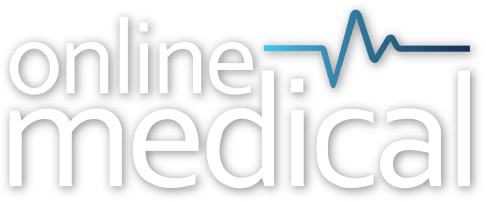
It’s important to understand the way your site users interact with your website content. The behaviour of people reading web materials is significantly different to people reading print materials. Rather than reading entire articles from start to finish, web users typically scan for information.
Renowned web usability expert Jakob Nielsen found that “on the average webpage, users have time to read at most 28% of the words during an average visit; 20% is more likely”.
View original research article.
There are a couple of important implications of this…
- Wherever possible, ensure your content is not overly long (our copywriters target, but are not constrained to 300 words).
- Ensure content is appropriately structured (using guidelines below) so that you support website user behaviour.
How to Write User-Friendly Content
Know your audience
Know your audience when writing for the web, you can write in a manner that will be meaningful for them. For instance, most patients will have a lower understanding and tolerance for technical terminology than medical professionals. You are still obligated to use technically correct terms, but also include layman’s versions of those terms if appropriate. This assists comprehension and search via Google.
“Chunk” your content
Chunking makes your content more scannable by breaking it into manageable sections. Sections are typically (but not always) delineated by subheadings. Be aware that you have access to a number of subheadings (h1, h2, h3, h4). Utilise these subheadings to divide and subdivide a topic to increase readability.
Be consistent
It’s likely you will have content that can benefit from a consistent approach. For example – a number of “doctor bio” pages, or a number of “procedures” pages. It makes sense to have consistent headings and cover the same topics. Essentially a “template” that can form a starting point for how you flesh out the materials within each “type” of page.
Front-load the important information
Use the journalism model of the “inverted pyramid.” Start with the content that is most important to your audience, and then provide additional details.
Use pronouns
The user is “you.” The medical practice is “we.” This creates cleaner sentence structure and more approachable content.
Use active voice
“The board proposed the legislation” not “The regulation was proposed by the board.”
Use short sentences and paragraphs
The ideal standard is no more than 20 words per sentence, five sentences per paragraph. Use dashes instead of semi-colons or, better still, break the sentence into two. It is ok to start a sentence with “and,” “but,” or “or” if it makes things clear and brief.
Use bullets and numbered lists
Don’t limit yourself to using this for long lists. Ensure you use an appropriate mixture of paragraph copy and bulleted lists. Don’t fall into the trap of using predominantly bulleted content. This actually decreases readability and comprehension.
Avoid “nested” bullets
Avoid the use of “nested” bullets wherever possible. Generally this indicates a problem with your content. You may be better served rewriting the introductory bullet as a seperate paragraph followed by a top level set of bullets only.
Use clear headlines and subheadings
Questions, especially those with pronouns, are particularly effective. Headlines should be minimal length and one sentence only. Avoid the use of semicolons and full stops on headlines and subheadings. These are unnecessary and can be distracting.
Use unique content
Unique content is very importantEnsure that you (or a commissioned professional) write the content. It’s critical that all content (other than quoted text) is unique. There are a couple of reasons for this:
Search Results
Google and other search engines strongly prefer unique content. They can specifically detect duplicate content and will “punish” your website ranking if such content is detected. They are very capable at achieving this detection. Pages should be unique not just when compared to other websites. It’s also very important to not have duplication on pages within your own website.
Legal liability
It’s possible that you may be violating copyrights of others by duplicating any portion of content (unless explicitly allowed by the author).
We offer Copywriting Services
Our copywriters are experienced in writing for the web and take all of the previously mentioned guidelines into account.
There are a number of reasons it may make sense to commission a professional Online Medical copywriter.
It may be that you aren’t particularly suited to writing. It may be that you don’t have the time, or the inclination. You may decide that while your efforts are acceptable, you want to achieve an exceptional result.
It’s important to understand the opportunity cost, as our pricing is likely to be significantly less than your hourly rate. You may decide you are better off spending the time doing what you do best.
Whatever the reason we only need to understand the pages affected and we can arrange a quote.
Copywriting usually takes a couple of weeks to present finished material for your approval. It’s an efficient, cost-effective and timely mechanism to promptly achieve the goal of well written content.
Contact us today to discuss Copywriting Services.

